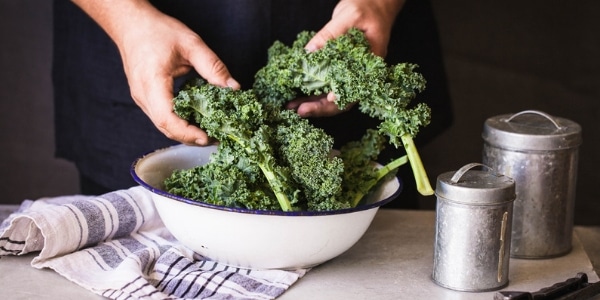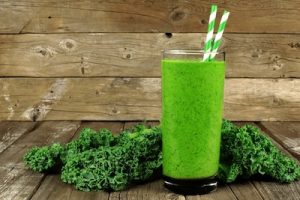Your diet can help combat the aging process. Kale, a superfood filled with several nutrient, is able to fight on multiple fronts towards healthy aging within just a single serving.
Kale Benefits
The nutrients available in kale benefit not just one but nearly every area of the body, from the brain, digestive system and heart to the bones, skin, and eyes. Kale also has anti-inflammatory, anti-diabetic and anti-carcinogenic properties.
A single serving of kale contains the following:
- Beta-carotene (necessary for the synthesis of vitamin A)
- Vitamin K
- Vitamin C
- B-complex vitamins
- Manganese
- Calcium
- Copper
- Potassium
- Magnesium
- Dietary fiber
- Iron
- Phosphorus
Know Your Enemy: What Aging Does to the Body
To fully understand the anti-aging benefits of kale, it is important to note what aging does to the body. Cell numbers decrease as organs age, making the organs less functional over time. One cause of cell death is oxidative damage caused by free radicals. By-products of natural cellular energy production, free radicals damage the structural integrity of cells, making them less functional and ultimately leading to cell death.
Cognitive decline is a natural part of aging, the result of oxidative damage and the accumulation of plaques in nerve cells. The vitamin K and its derivatives lutein and phylloquinone in kale have antioxidant properties, promoting cell integrity and cell renewal. Kale for healthy aging brains assists in cognitive and memory preservation not only in brain cells but in nerve cells throughout the body.
As they age, the lenses of the eyes stiffen and become denser, and the number of nerve cells in the eye decreases. Kale contains the beta-carotene-related antioxidants lutein and zeaxanthin. Both protect the cells of the eye and combat macular degeneration and cataracts, two eye conditions associated with aging.
As the heart ages, the blood vessels and arteries stiffen, making the organ work harder. In addition to providing antioxidant activity preserving cells, kale also benefits heart health by lowering cholesterol and in turn, lowering the risk of cardiovascular disease. Kale contains bile acid sequestrates, chemical compounds that bind to the acids that contribute to cholesterol content after the body digests fats, keeping them from re-entering the bloodstream.
The digestive system slows with age, often leading to constipation in older people. The dietary fiber and water in kale aid in regularity, while the B-complex vitamins aid in proper digestion. Immune health is also linked directly to digestive health. Proper colon function ensures a stronger immune system and another tool in beating the signs of aging.
Another benefit of the many nutrients in kale is maintaining healthy skin and hair. Vitamin C in kale is crucial for the production of collagen. A fibrous, structural protein, collagen is a key building block of cells and tissues throughout the body.
Bones lose density and shrink as they age. This can cause brittleness and catastrophic fractures late in age. The potassium in kale fights loss of bone mineral density, while vitamin K is important for the absorption of calcium. Aging also puts stress on tendons and ligaments. The anti-inflammatory properties of kale can help relieve the symptoms of rheumatoid arthritis.






